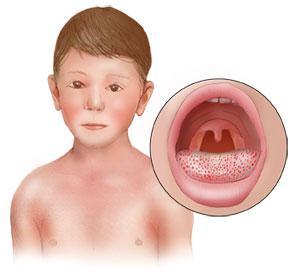 Hong Kong’s recent reporting of the deaths of two children from scarlet fever is a serious reminder that infectious diseases still pose a great risk in many parts of the world, even in places that have evolved from third world status.
Hong Kong’s recent reporting of the deaths of two children from scarlet fever is a serious reminder that infectious diseases still pose a great risk in many parts of the world, even in places that have evolved from third world status.
The death of a seven year old in May and was the first casualty of scarlet fever in ten years. When the second death (a five year old) occurred on June 21st, officials grew increasingly concerned. Both children deteriorated very quickly from two different antibiotic-resistant strains of scarlet fever, according to Kwok-yung Yuen, head of Hong Kong University’s microbiology department, who sequenced samples taken from the current outbreak. One of the two strains appears to be more dominant, and has undergone a genetic mutation that increases its ability to spread.
Scarlet fever, also known as scarlatina, is rarely seen by physicians in the developed world. Most medical students in the United States would likely miss the diagnosis despite its classic presentation- fever, sore throat, a sandpaper rash and bright tongue. The widespread use of penicillin during the 20th century virtually wiped out the infection, but overuse of both penicillin and other antibiotics such as erythromycin and clindamycin have allowed bacteria such as the streptococcus strains responsible for scarlet fever to develop resistance. Fortunately, penicillin has thus far weathered the storm and is still effective against the bug, a fact that is very surprising to Mark Walker, a microbiologist and strep expert who heads the Australian Infectious Disease Research Center. “We’re very lucky. We still have a treatment we can use.”
“Germs outsmarting antibiotics is a cause of lots of nightmares,” said Dr. Edward Kaplan, who heads a World Health Organization research center at the University of Minnesota that focuses on the streptococcus germ. “The fact that we still have penicillin is something we all get down on our knees and say prayers about each night.”
Along with the nearly 550 cases of scarlet fever reported this year, which is already double Hong Kong’s annual number, there are over 9,000 cases in mainland China. Although resistance to alternative antibiotics used by those allergic to penicillin is not new, the severe toxicity and ease of spread of the new strains seen this year is what concerns health officials the most. As the development of vaccines is years away, controlling the spread of the illness and the judicious use of antibiotics is now the top priority.
Those traveling with children are advised to research their destination for any reported outbreaks of infectious disease.
Photo from choa.org.

